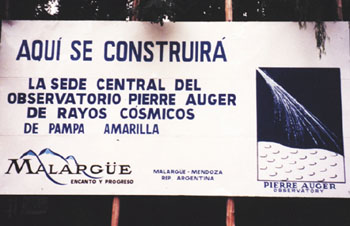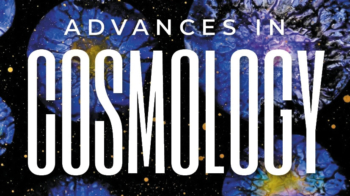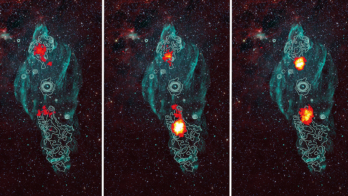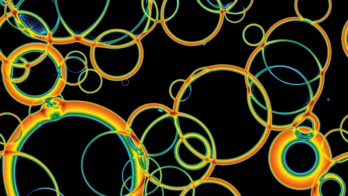Edited by Emma Sanders
Water,
water everywhere
The third mission in NASA’s small explorer programme was launched last December.
The Submillimetre-Wave Astronomy Satellite (SWAS) is designed to study the
chemical composition of interstellar clouds.
Submilli-metre radiation in the
487 to 556 GHz range is emitted by water,
molecular oxygen and
atomic carbon and
cannot be detected from the
ground owing to atmospheric attenuation.
So far,
results from the
satellite show an unexpectedly large abundance of water in the
star-forming regions observed.
Cosmic-ray detector is under way

Work has now started on the Pierre Auger Southern Observatory in Argentina’s Mendoza province. When completed in the year 2003,
it will be the world’s largest cosmic ray observatory and will have 1600 detectors spread over 3000 sq. km an area about 10 times the size of Paris. A complementary observatory is planned for the northern hemisphere.
The detectors consist of water tanks that are equipped with photomultipliers,
which detect Cherenkov radiation emitted by the passing particles. On dark nights,
sensitive light sensors will also pinpoint the origin of showers by observing the faint fluorescence that is caused by collisions with air molecules in the atmosphere.
Direction,
energy and mass measurements will be more accurate than those that are achieved by current cosmic-ray detectors,
and the large detector will provide better statistics for rare high-energy events.
The highest-energy cosmic rays ever detected have been seen by the Fly’s Eye cosmic-ray detector in Utah and AGASA (Akeno Giant Air Shower Array) in Japan. Their energy,
which is greater than 1020 eV,
is more than a hundred million times as great as that of particles produced in accelerators.
Auger Project collaborators,
from 53 institutes in 19 countries,
hope to begin southern Hemisphere observations in the year 2001.





